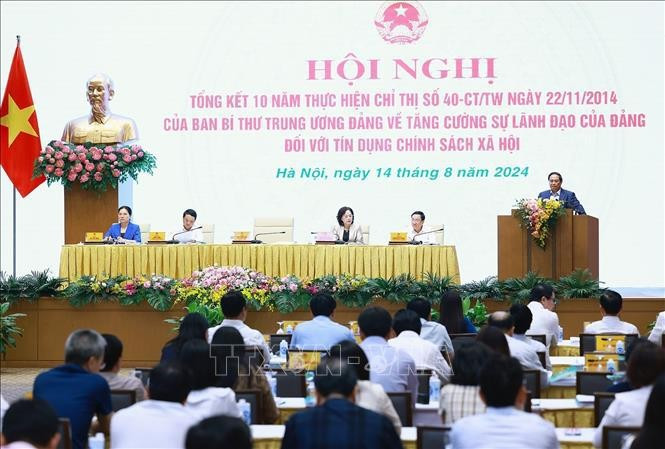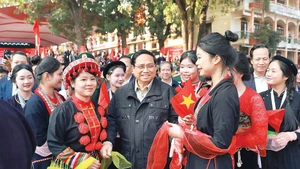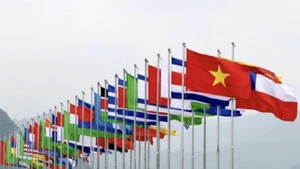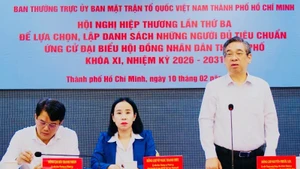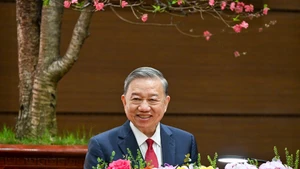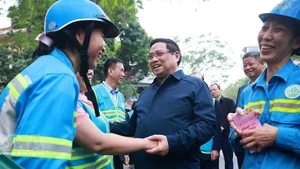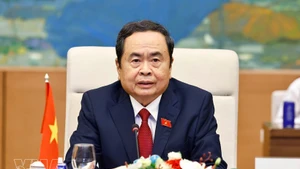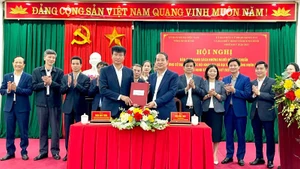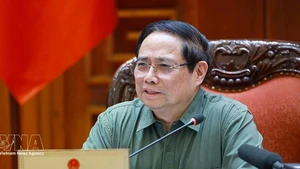He made the remarks while chairing a teleconference to review 10 years carrying out Directive No. 40-CT/TW of the 11th Party Central Committee’s Secretariat on enhancing the Party’s leadership over social policy credit.
The Government leader acknowledged and spoke highly of the contributions made by ministries, sectors, and administrations at all levels, especially the Vietnam Bank for Social Policies (VBSP), to implementing the directive. He affirmed that the Party and State’s consistent policy is to develop the economy in tandem with social justice, and not to sacrifice social progress and justice and the environment to pursue pure economic growth.
"Harmoniously combining economic growth and social progress and equity, bridging the gap between rich and poor, and well implementing social security policies are both goals and driving forces for sustainable national development," he stressed.
He went on to say that social policy credit will continue to be an important measure to bolster the Party and State’s policies and targets on economic growth, social justice, national target programmes, as well as socio-economic development. He pointed out six orientations to strengthening the Party’s leadership over social policy credit that comprise the completion of a decree on the organisation and operation of the VBSP as well as legal frameworks and regulations to focus resources and improve capital structure for the bank in a stable and sustainable fashion.
He ordered favourable conditions for the VBSP to access ODA funds and expand its capital mobilisation forms, and perfect policies regarding credit, labour, and wages that help the bank effectively carry out this policy.
According to PM Chinh, localities need to prioritise entrusted loans for the settlement of employment and affordable housing projects. He ordered the Ministry of Construction to join hands with the Ministry of Planning and Investment, the Ministry of Finance, and the State Bank of Vietnam to design a 30-trillion-VND (1.19 billion USD) credit package for building and renovation of houses.
He also stressed the need to prioritise capital for ethnic minority people, and those in disadvantaged, border and island regions, asking the bank to improve its forecast and analysis capacity, step up IT application and digital transformation, and build prestigious and devoted staff to serve the people.
Meanwhile, the Vietnam Fatherland Front, and socio-political organisations were requested to well carry out communications, supervision and social criticism for the implementation of the Party and State’s policies on poverty reduction, and social credit activities.
After 10 years implementing the directive, the VBSP has completed its credit management model in accordance with the country’s political structure and practical situation.
Total capital for the VBSP's social policy credit has so far surpassed 373 trillion VND, while outstanding debt has reached nearly 351 trillion VND, helping more than 3.1 million households escape poverty, and over 4.2 million labourers have jobs. The loans also provided support for more than 610,000 students, many impoverished people and policy beneficiaries.
Social policy credit contributed to lowering the poverty rate from 14.2% to 4.25% in 2011-2015, and from 9.88% to 2.23% during 2016-2021, preventing "black credit", promoting economic restructuring, and building new-style rural areas across the nation.
